
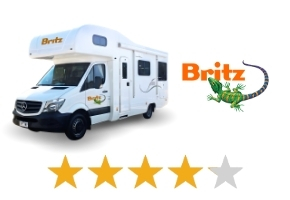
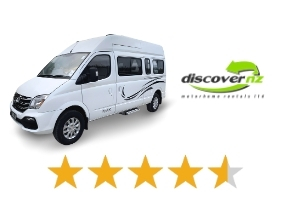
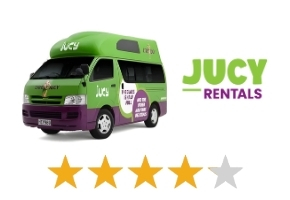
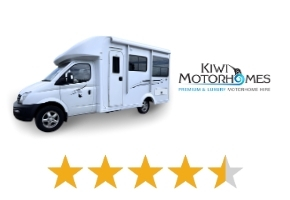
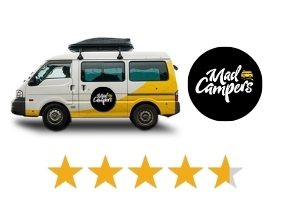
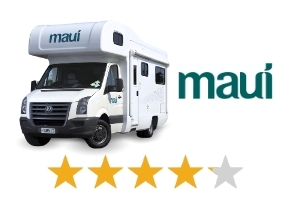
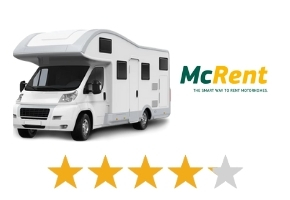
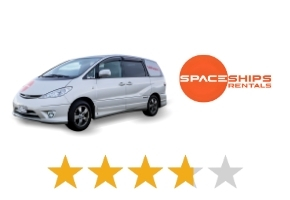
Renting a campervan in New Zealand is simple with Camper Champ. We compare prices of over 20 companies, offering options from cheap campervans to luxury motorhomes to fit your needs.
The cost of renting a campervan in New Zealand ranges from $50/day to $600/day depending on the vehicle type and travel dates.
Pick up your campervan in Auckland, Christchurch, Queenstown, Wellington, or select smaller cities. One-way rentals are also available for more flexibility.
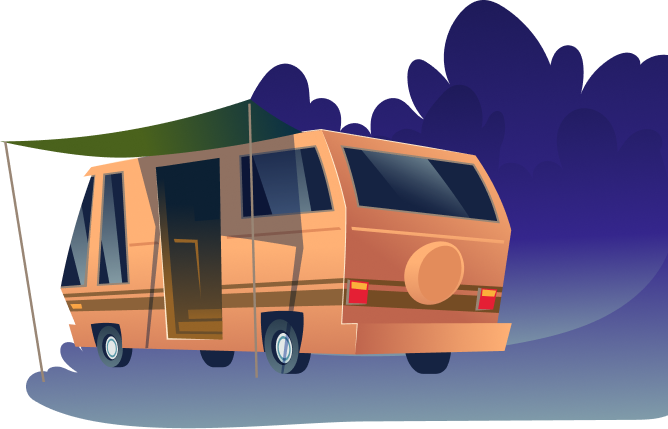
Discover New Zealand your way by choosing a camper that suits your travel needs.
Not all vehicles may be available. Use the search tool to check availability for your travel dates.
Motorhome rental holidays in New Zealand are a great way to experience the country's natural beauty and diverse landscape. You have your vehicle to go wherever you want, and you don't need to worry about finding accommodation every night. Motorhomes are also fantastic for groups, as there is plenty of space for everyone to sleep and relax.
To get the most out of your campervan holiday in New Zealand, here are a few recommendations:
Plan your route—Make the most of scenic drives to avoid spending too much time driving on long journeys.
Make sure you have everything you need before hitting the road—Including things like bedding, cooking supplies and first-aid kits.
Be prepared for any weather conditions—Pack warm clothes for winter trips and plenty of sunscreen and insect repellent for summer excursions.
Get out and explore—New Zealand is full of beautiful landscapes and exciting attractions best seen by road. Check out local tourist attractions and activities at a fraction of the cost of those in big cities.
And most importantly, don’t forget to pack your sense of adventure – there’s nothing quite like exploring a new place by campervan!
When driving around NZ in a campervan rental, remember these important tips:
Freedom camping in New Zealand is camping for free overnight on public land that is not a managed campsite. This can be done in your campervan, motorhome, or tent. However, not all public land is suitable for freedom camping, and it is prohibited in urban areas, including city parks and beaches, unless specific facilities are provided for this purpose. It is important to check local bylaws and regulations, as freedom camping is restricted in many regions due to environmental and public health and safety concerns.
Freedom camping doesn’t mean you are free from responsibility or to camp anywhere.
To freedom camp responsibly, follow the Tiaki care code and these essential rules.
Yes, many companies have depots in both the North and South Islands and allow one-way trips.
If planning this type of trip, you will need to pay the cost of the ferry. Our support team can help with your booking.
Additional one-way fees may apply. The comparison tool will automatically factor this into your total.
Yes, many companies allow a bike rack to be fitted to the vehicle. Please note that these may not be compatible with all makes and models, and usually must be arranged in advance.
All drivers must have a current and full driver’s licence to hire a vehicle. Foreign licences are acceptable if they are in English or are accompanied by an accredited English translation. Otherwise, an International Driving Permit (IDP) is required.
Yes, a large number of companies allow for one-way rentals.
One-way rentals may not be available between all routes, and additional fees apply, depending on the pickup and drop-off locations. Our comparison tool will automatically factor in any additional fees and show you which vehicles are available on your preferred route.
Because there is no tax on diesel fuel in New Zealand, the government imposes a Road User Charge (RUC) instead. This is a set amount per 1,000 kilometres, depending on the size and weight of the vehicle.
For companies that offer diesel vehicles, you will need to pay an RUC based on kilometres travelled. Our comparison tool will tell you if this applies to your chosen vehicle.
Check the rental terms for specific charges regarding your chosen vehicle.
Most campervan rental companies in New Zealand require the driver to be 21 years of age or older to access their full range of vehicles.
Some companies will rent to drivers between 18 and 21, but only certain models may be available. In those cases, additional insurance may be required.
Enter the driver’s age into our search tool and we will filter available vehicles to match.
Note: policies vary from supplier to supplier. Always check the T&Cs for your rental.